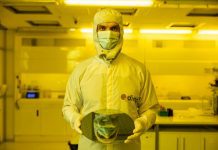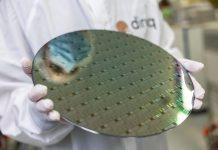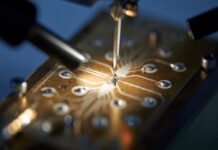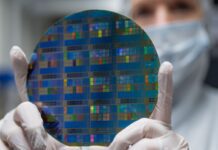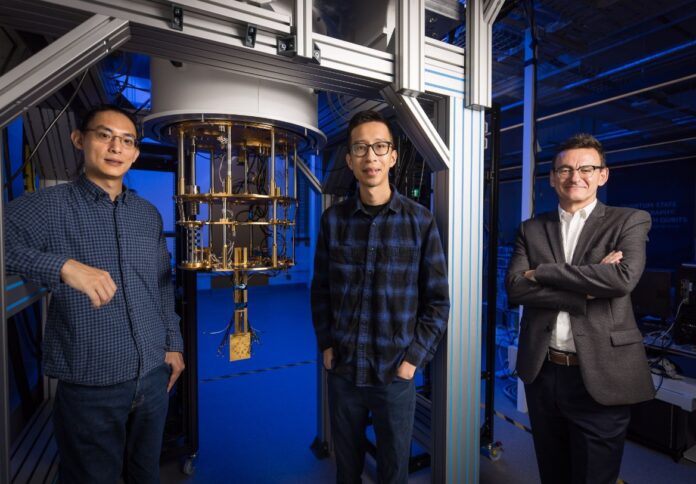
Engineers at Diraq, an Australian startup specialising in quantum processor development, have achieved a significant milestone in quantum computing by enabling quantum processors to function at temperatures much warmer than previously thought feasible.
Published in the prestigious journal Nature, the study titled “High-Fidelity Spin Qubit Operation and Algorithmic Initialization Above 1K” demonstrates Diraq’s spin-based quantum processors’ ability to operate at temperatures 20 times higher than previously demonstrated.
According to researchers, this breakthrough opens doors for more efficient and cost-effective quantum computing systems.
Traditionally, quantum computing has faced challenges due to the need for extremely low temperatures to maintain qubit stability.
Diraq’s research showcases high-precision spin-based quantum computation at temperatures above one Kelvin, aligning with the operational parameters of conventional electronics.
Jonathan Huang, lead author and research associate at Diraq, described the achievement as groundbreaking, highlighting the deep understanding of physics and engineering design that made it possible.
“Our advanced engineering achievement involved a deep understanding of physics as well as the experimental curiosity to push the boundaries of engineering design,” Huang asserted.
Prior to this milestone, controlling qubits at higher temperatures posed a fundamental challenge to scaling quantum devices.
David Reilly, a professor at the University of Sydney, emphasised the practical significance of Diraq’s work, noting its potential to streamline device characterization and screening processes, reducing the need for complex cooling systems.
Diraq’s CEO and Founder Professor Andrew Dzurak said he envisions a future where “hot qubits” enable quantum computers to perform calculations beyond the capabilities of current supercomputers.
“Harnessing the power of ‘hot qubits,’ these quantum computers will enable calculations far beyond the reach of supercomputers that exist today, enabling faster and more accurate predictions and analysis,” the professor noted.
He added, “This will also save costs and energy when running calculations to solve problems of global significance, generating significant economic outcomes.”
Dr Henry Yang, who serves as the head of Quantum Control at Diraq, spearheaded the team’s earlier research effort highlighted in a 2020 Nature publication.
Fueled by Diraq’s technological advancements, the company said the potential of quantum computing is anticipated to make significant inroads into industries such as pharmaceuticals, materials science, finance, logistics, weather forecasting, and the efficient management of energy storage and distribution.


